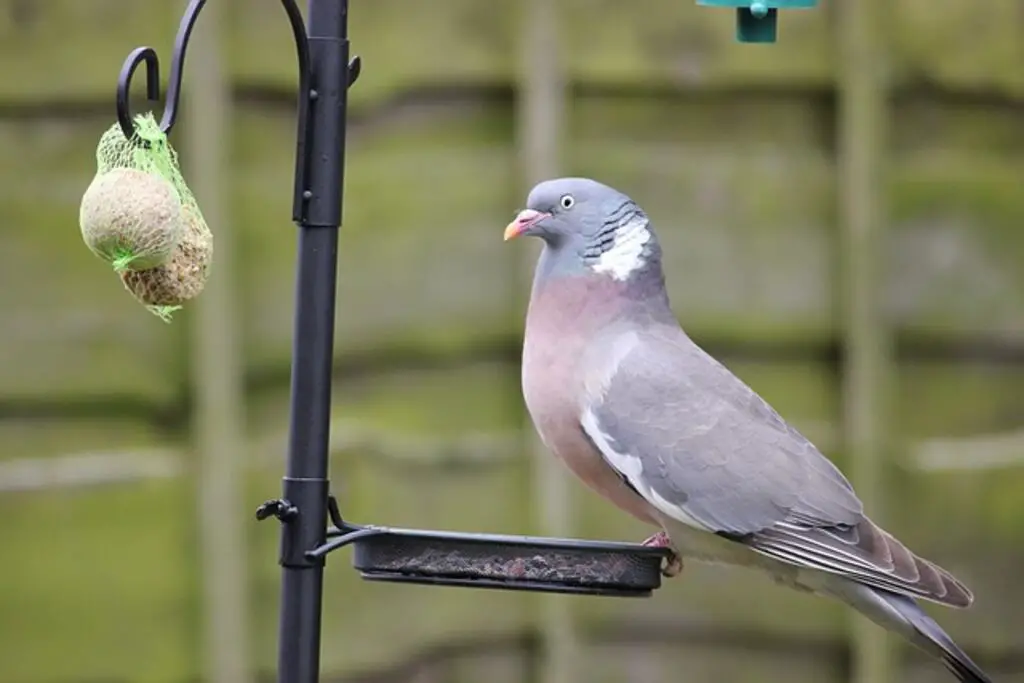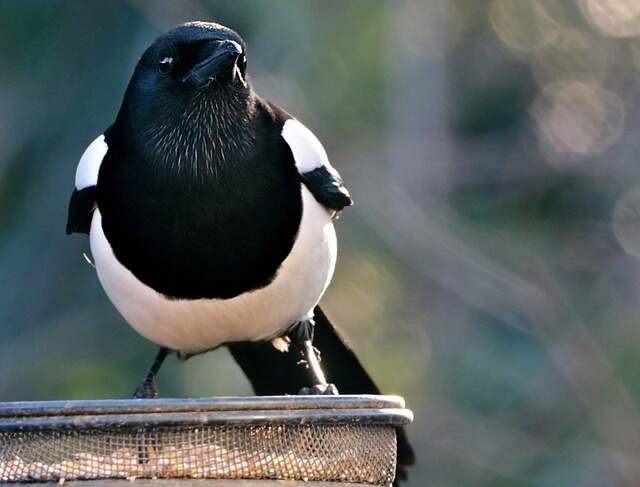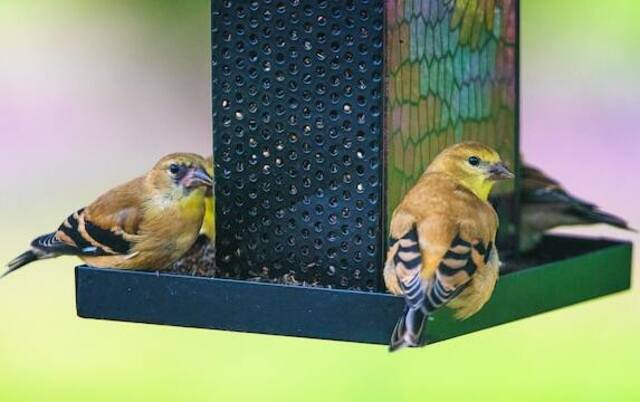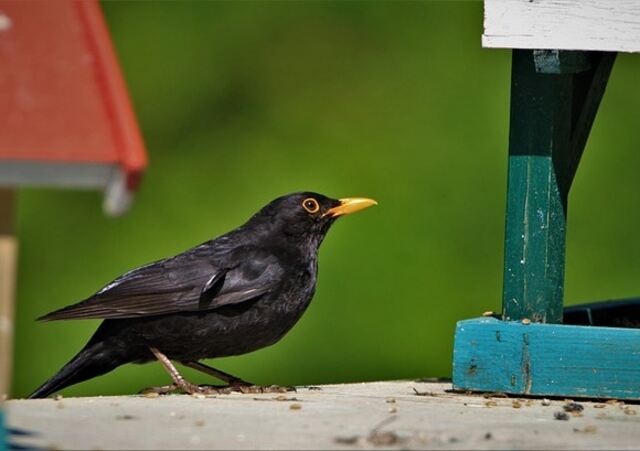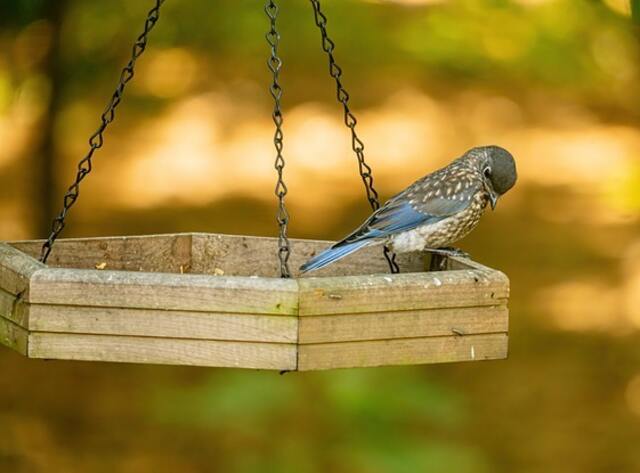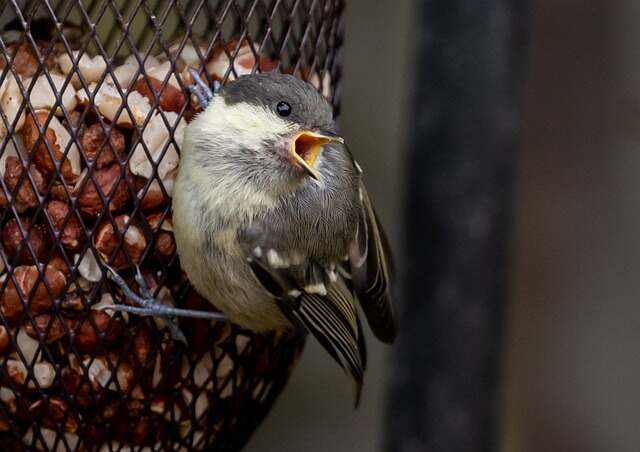If you’re wondering, can birds eat almonds? the answer is yes, but with caution. Almonds can be a healthy treat for birds when given in moderation, but they should be offered unsalted and unseasoned. Some bird species, especially small ones, may have trouble digesting almonds, so it’s important to monitor how they respond. In this article, we’ll explore whether almonds are a safe snack for birds and what you need to keep in mind before offering them.
Table of Contents
- 1 Can birds eat almonds?
- 2 Are almonds toxic to birds?
- 3 Can birds eat roasted almonds?
- 4 Can baby birds eat almonds?
- 5 Which birds eat almonds?
- 6 Can seagulls eat almonds?
- 7 Can birds eat salted almonds?
- 8 Can birds eat raw almonds?
- 9 Can birds eat slivered almonds?
- 10 Can wild birds eat flaked almonds?
- 11 Can wild birds eat raw almonds?
- 12 Can pet birds eat almonds?
- 13 Can lovebirds eat almonds?
- 14 Can birds eat almonds and cashews?
- 15 Can birds eat almonds and Brazil nuts?
- 16 Can birds eat almonds and hazelnuts?
- 17 Can birds and squirrels eat almonds?
- 18 What should I do if my parrot has eaten a bitter almond?
- 19 What fat do almonds contain?
- 20 How to provide almonds for birds?
- 21 What kinds of nuts can pet birds eat?
- 22 What kinds of nuts can wild birds eat?
- 23 How to feed almonds to birds?
- 24 How wild birds feed on almonds?
- 25 What nuts are bad for birds?
- 26 What is almond butter?
- 27 Can birds eat almond butter?
- 28 How should you feed almonds to your parrot?
- 29 What happens if you feed your parrot more than 1-3 nuts per day?
- 30 How do almonds benefit wild birds?
- 31 How many bitter almonds does it take to be fatal for a parrot?
- 32 Author
Can birds eat almonds?
Yes, birds can eat almonds, and they can be a nutritious snack for many species! Almonds are packed with protein, healthy fats, vitamins, and minerals that can benefit your bird’s diet. However, there are some important things to keep in mind when feeding almonds to birds.
First and foremost, make sure the almonds don’t contain any additives, such as sugar, salt, preservatives, or other flavorings. Offering raw, unsalted almonds is the safest option. Also, always shell and chop the almonds into small pieces to prevent choking or digestive issues due to the large size of the nut.
Another thing to consider is the skin of the almond, which contains tannins. If ingested in large amounts, these tannins can cause gastrointestinal distress in birds. To make almonds safer for your feathered friends, soak them overnight or briefly boil them to remove these tannins and make them easier to digest.
Lastly, because almonds are high in fat, they should be given in moderation. Offer no more than ½ teaspoon at a time as part of your bird’s daily diet, not as a regular treat.
Are almonds toxic to birds?
Almonds are actually a healthy treat for birds, offering numerous benefits! They’re packed with fatty acids that can support feather growth and overall health. Almonds also provide protein, fiber, and essential nutrients that are often missing from typical bird seed.
However, flavored or salted almonds are a big no-no for our feathered friends. These versions often contain additives like sugar, salt, preservatives, and artificial flavors that can upset their digestive system and cause toxicity.
When feeding almonds to birds, make sure they’re plain and unseasoned. This way, you can feel good knowing the treat is both safe and nutritious for them! But remember—moderation is key. Too many almonds, or giving them too often, can lead to gastrointestinal issues and an increase in cholesterol levels.
Also, always avoid giving your bird the almond shells. They can cause intestinal blockages, which are dangerous for birds.
Can birds eat roasted almonds?
The age-old question of whether birds can eat roasted almonds has been debated by bird owners and experts alike. The simple answer is yes—most birds can safely consume roasted almonds in moderation. Almonds are a good source of healthy fat and protein, making them a beneficial snack for your feathered friend.
However, it’s important to keep in mind that almonds should only be offered as an occasional treat, not as a regular part of their diet. Always chop the almonds into smaller pieces before giving them to your bird. This will help with digestion and avoid any choking hazards.
Avoid store-bought almonds that may contain added salts, sugars, or preservatives, as these can be harmful to your bird’s health. Follow these guidelines, and you and your feathered friend can enjoy roasted almonds safely!
Can baby birds eat almonds?
When it comes to feeding baby birds, many people wonder if almonds are a safe and healthy option. While almonds are not toxic for baby birds, they should be fed as an occasional treat rather than a main staple of their diet. Almonds have high levels of fat and protein and can be difficult for young birds to digest due to their immature digestive systems.
Baby birds require a diet that is balanced in carbohydrates, proteins, fats and minerals for proper growth and development. If you decide to offer almonds to your baby bird, make sure the nuts contain no added additives and are shelled to avoid the risk of choking or obstruction.
The almond pieces may also need to be crushed into smaller pieces, so they can easily fit in the bird’s mouth. To ensure your baby bird gets all the nutrients necessary for its health, provide a variety of foods such as soft fruits and vegetables along with fortified seed mixes specifically designed for baby birds.
Which birds eat almonds?
Birds are some of the most interesting animals to observe in the wild because they exhibit so many different behaviors and habits. One thing that many bird watchers have wondered is which birds eat almonds? There are a variety of species that enjoy snacking on these delicious nuts.
Crows, jays, woodpeckers, chickadees, nuthatches, magpies, northern flickers, and purple finches are just some of the birds who enjoy munching on almonds. Bird-lovers can create an inviting environment for their feathered friends by placing almond treats near feeders or around the yard.
Almonds provide an abundance of energy and nutrients that help keep birds healthy and happy. While it’s fun to watch them search for snacks, be sure to take precautions with any food sources you provide to ensure your feathered friends stay safe!
Can seagulls eat almonds?
Seagulls can indeed eat almonds, though it’s not a staple in their diet. Almonds are high in protein and fat, so it makes sense that seagulls, as omnivorous birds, would enjoy snacking on them when available. It’s important to note that they should only be fed shelled almonds with no additives added.
While certain additives such as sugar can make the almonds more appealing to us, they do not provide any nutritional benefit to the seagull and could even harm its digestive system or cause death if consumed in large amounts.
Feeding wild birds is generally discouraged, but if you must feed seagulls almonds, make sure they are all-natural and unsalted for the sake of their health.
Can birds eat salted almonds?
When it comes to feeding birds, many people wonder if they can give them salted almonds as a snack. The answer is no. While almonds are safe for birds to eat, salted almonds pose a risk of over-salting the bird’s body and causing health problems. Additionally, any nuts that have been flavored with additional ingredients should be avoided, since these ingredients may not be safe for our feathered friends. Instead, choose unsalted or lightly-salted varieties of almonds when providing them to your avian companions. Ensuring that your bird’s diet provides the right balance of nutrients is essential in keeping them healthy and happy.
Can birds eat raw almonds?
Raw almonds are also safe for birds as long as they are given in moderation and not in large amounts; Birds require many nutrients to stay healthy and most nuts do not provide enough nutrition for them on their own. It is recommended to combine raw almonds with other foods like fruits and vegetables to give your bird the essential vitamins and minerals needed for proper growth and development.
Can birds eat slivered almonds?
Birds definitely can eat slivered almonds. They provide birds with important vitamins and minerals, plus the crunchy texture can make a tasty snack for our feathered friends. Though they should always be served in moderation, these nuts can provide a nutritious addition to a bird’s diet. When feeding slivered almonds, it’s best to grind them up or cut them into small pieces so that the bird doesn’t choke on them.
Additionally, only use unsalted and unseasoned nuts, since salt and spices can be dangerous for birds to ingest. With proper care and caution, you can enjoy sharing this delicious treat with your feathered friends!
Can wild birds eat flaked almonds?
Wild birds can absolutely eat flaked almonds! Almonds are a great source of nutrition for wild birds, with plenty of protein and fat, as well as other essential vitamins and minerals. Flaked almonds provide an easy to eat snack, with all the nutritional benefits of whole almonds.
In addition, insects such as beetles, which many wild birds also enjoy eating, can be found on the surface or inside the flakes. Foraging for these treats provides an extra level of mental stimulation for wild birds, further enhancing their quality of life.
When providing flaked almonds for your feathered friends in the garden, just make sure that you don’t overfeed them – too much can lead to health issues like obesity or nutrient deficiency.
Can wild birds eat raw almonds?
Birds in the wild can be seen snacking on nuts of all kinds, including almonds. But can they safely eat raw almonds? The short answer is yes – wild birds can eat raw almonds. Almonds are a nutrient-dense source of energy for wild birds, containing healthy fats and proteins as well as essential vitamins and minerals such as magnesium, iron, and zinc.
However, it’s important to keep in mind that feeding large amounts of any type of nut to wild birds can cause an imbalance in their diet, leading to health problems. Therefore, when feeding raw almonds or any other type of nut to wild birds, it should only be done in moderation.
Similarly, if you choose to feed wild birds roasted or salted almonds, make sure they’re unsalted and unsweetened varieties.
Can pet birds eat almonds?
Yes, pet birds can eat almonds in moderation. Almonds are a healthy snack for birds, as they provide essential proteins and fats that help keep them healthy and full of energy. While almonds should be given in small amounts, it is important to avoid giving them too many because almonds contain high amounts of fat and calories.
To prevent digestive issues, it is recommended that you soak the almonds in water overnight before feeding them to your bird. Additionally, pet birds can also benefit from eating other nuts such as walnuts, hazelnuts and cashews.
Just remember to give your bird these nuts in moderation, so they can enjoy all the nutritional benefits without facing any health issues.
Can lovebirds eat almonds?
Almonds are not only safe for your lovebird, but can even provide them with some health benefits. Almonds are an excellent source of protein and healthy fats that can help keep your bird’s feathers healthy, while providing important minerals such as calcium and magnesium.
It’s also important that you give your lovebird almonds in moderation as they contain a lot of fat which could lead to obesity if given too much. To add almonds to your lovebird’s diet, you should crush them up into small pieces or slivers before giving it to the bird, so they do not choke on them.
You may also want to consider soaking the almonds first overnight in water to soften them up a bit before feeding it to your pet. Overall, almonds make a great treat for your beloved lovebirds!
Can birds eat almonds and cashews?
Almonds and cashews can be a great source of nutrition for some birds. Almonds are high in protein and healthy fats, while cashews are rich in vitamins, minerals, and essential fatty acids. Birds that enjoy nuts as part of their diet may benefit from the nutritious properties found in almonds and cashews.
However, it is important to note that these nuts should always be served unsalted and unseasoned, since salt can be toxic to your feathered friends. Additionally, you should only offer almonds and cashews as occasional treats, since they are calorie-dense foods.
If you decide to feed your bird these yummy nuts, make sure to chop them into small pieces so that your bird does not choke on them.
Can birds eat almonds and Brazil nuts?
Birds can eat almonds and Brazil nuts, but it is important to make sure that they are properly prepared before being given to the birds. Almonds should be shelled blanched or soaked in water and Brazil nuts must be shelled first, as their shells can choke the bird or cause other digestive problems.
Additionally, these types of nuts are high in fat and not recommended for everyday feeding. Instead, providing your feathered friends with a variety of fruits and vegetables, along with seeds and grains, will ensure they stay healthy and well-nourished.
Can birds eat almonds and hazelnuts?
Yes, it is safe for birds to eat almonds and hazelnuts. These nuts are rich in healthy fats, proteins, vitamins, minerals, and antioxidants which can provide a nutritious diet for many species of birds. Almonds and hazelnuts also have high levels of calcium, which helps the development of strong bones and muscles. In addition to providing essential nutrients, these nuts are a great source of energy for birds.
They can be given as treats or incorporated into their regular diets. It is important to note that these nuts should only be given in moderation since they have high amounts of fat and calories which could lead to health issues if consumed in excess.
If you do choose to give your bird almonds or hazelnuts, make sure they are shelled, additive free, and the pieces are small enough, so they do not become a choking hazard.
Can birds and squirrels eat almonds?
Yes, both birds and squirrels can safely enjoy almonds in their diet. Almonds are a good source of healthy fats, protein, fiber and other vitamins and minerals which make them an ideal snack for many animals. Wild birds especially love almonds since they provide a great energy boost after a long flight.
Squirrels on the other hand also benefit from eating almonds as they contain essential fatty acids that aid in digestion, maintenance of healthy coatings and general health. Both these animals need to crack open the shell to get to the nut inside, so it’s best to give them almond kernels instead of whole almonds to make it easier for them.
It is important to note that when giving either bird or squirrels almonds, moderation should be exercised as too many can lead to digestive problems.
What should I do if my parrot has eaten a bitter almond?
If your parrot has eaten a bitter almond, it’s important to take them to the vet as soon as possible. Bitter almonds contain cyanide, which can be highly toxic for birds. Symptoms of toxicity include difficulty breathing, seizures, vomiting, and decreased energy levels.
Immediate medical attention is essential in order to prevent further damage or death. Your vet may give your bird supportive treatment such as fluids and medication to help reduce symptoms.
Additionally, make sure your parrot is given plenty of water and clean food until they make a full recovery. It’s also important to keep an eye on their diet going forward and make sure that they do not eat any other potentially hazardous items.
What fat do almonds contain?
Almonds are a nutritional powerhouse, packed with essential minerals and vitamins that are essential for good health. They also contain fat, which is an important source of energy for the
body. The type of fat contained in almonds is primarily unsaturated, meaning it’s healthier than saturated fats found in other food sources.
Unsaturated fats can help reduce levels of bad cholesterol and raise levels of beneficial HDL (good) cholesterol. Almonds provide monounsaturated fatty acids including oleic acid and linoleic acid, as well as small amounts of polyunsaturated fat such as alpha-linolenic acid.
All three types of fatty acids play important roles in maintaining healthy cell membranes, reducing inflammation and supporting cardiovascular health. Additionally, almonds contain phytosterols, which can help lower LDL cholesterol without affecting levels of good cholesterol.
How to provide almonds for birds?
Providing almonds for birds is an excellent way to attract them to your backyard. Almonds are high in protein, calcium, and other essential nutrients that can help keep our avian friends healthy and happy. To provide almonds for your feathered visitors, you will need to purchase shelled raw almonds from a bulk store or online retailer.
Once purchased, you’ll want to break the almonds into smaller pieces so that smaller birds can access them more easily. Consider placing the almonds in a shallow tray or feeder, so they are easier for birds to access.
Additionally, be sure to clean up fallen shells regularly, as these can pose a choking hazard for unsuspecting pets! With a bit of extra care and attention, you can enjoy seeing your favorite feathered friends visit your backyard while providing them with the nourishment they need.
What kinds of nuts can pet birds eat?
A variety of nuts are a great food option for pet birds. Almonds, cashews, peanuts, sunflower seeds and walnuts are all excellent options that provide healthy sources of unsaturated fatty acids, minerals, carbohydrates and protein. However, it is important to note that some nuts can be dangerous for pet birds if not appropriately prepared or fed in moderation.
All nuts should be served without any added salt or flavorings – just plain raw is best. Additionally, nutshells should always be removed before feeding them to your bird, as shells can cause choking or other digestive issues.
Fresh fruits and vegetables should also accompany any nut-based diet, as they provide additional nutrients and vitamins needed for full health. As always, talk with your avian veterinarian about the best dietary choices for your specific pet bird.
What kinds of nuts can wild birds eat?
Wild birds can enjoy a variety of different kinds of nuts. They especially love peanuts, sunflower seeds, and walnuts. Peanuts are filled with protein and offer an excellent source of energy for birds to help them through the cold winter months.
Sunflower seeds are full of essential vitamins and minerals, making them an ideal snack for many birds like finches, chickadees, jays, cardinals, and titmice. Walnuts provide a high-fat content that helps wild birds survive during leaner times when food sources may be scarce.
Other nut varieties such as almonds and cashews can also be enjoyed by some species of wild birds, but should always be offered in moderation due to their higher fat content.
How to feed almonds to birds?
Almonds provide many birds with a healthy and nutritious food source, as long as they are fed in the correct way. To feed almonds to birds, it is best to crush them into small pieces first. This will make them easier for smaller birds like sparrows and finches to consume.
It is also important not to overfeed the birds; no more than one or two almond pieces per bird should be given each day. Additionally, remember to remove uneaten food after an hour or so and always keep your bird feeders clean and free of any debris that could harm the birds.
With these tips in mind, feeding almonds to wild birds can be a rewarding experience that offers hours of entertainment while helping nourish our feathered friends!
How wild birds feed on almonds?
Wild birds, such as crows and woodpeckers, can be seen foraging for almonds in many yards and parks. Almonds are a great source of nutrition for wild birds as they contain plenty of proteins, carbohydrates, fats and minerals. Wild birds love to eat almonds that have been cracked open by people or other animals.
They also enjoy eating the whole raw almond from trees or bird feeders. To feed wild birds almonds, place small amounts on a flat surface near the ground. The wildlife will come to them quickly! Wild birds need more than just almonds in their diet, so it’s important to provide them with other sources of food such as millet, sunflower seeds and peanuts.
By offering wild birds different kinds of nutritionally rich food, you can help keep them healthy throughout the winter months when food is scarce.
What nuts are bad for birds?
Birds can safely eat many types of nuts, such as peanuts, almonds, cashews, macadamias and walnuts. However, there are some nuts that can be toxic or harmful for birds to consume. Examples of these include pistachios, pecans and hazelnuts. They contain oils and fats which can cause digestive problems in birds if eaten in large amounts.
Some nuts may also contain a toxin called aflatoxin which is produced by certain species of fungi and molds. This toxin can be extremely dangerous for birds when consumed in high doses, and could lead to muscle weakness, tremor, or even death in certain cases.
It is best to avoid feeding any type of nut to your bird unless you know it is safe for them to eat.hard-shelled nuts are also not suitable for birds, unless they are shelled, as the shells may cause choking hazards or intestinal blockage.
What is almond butter?
Almond butter is a delicious and healthy alternative to traditional nut butters such as peanut butter. It’s made from ground, blanched almonds and has a creamy texture similar to other nut butters. Almond butter is jam-packed with dietary fiber, protein, vitamin E, magnesium, and monounsaturated fatty acids—all important for our health and well-being.
Its nutritional benefits make it an excellent addition to any diet. Not only is almond butter high in nutrients, it also tastes great when added to smoothies or spread over toast or fruit. Additionally, almond butter can be used as an ingredient in baking recipes or eaten straight out of the jar!
With its delicious taste and many health benefits, almond butter is a great option for those looking for healthier alternatives to their usual spreads.
Can birds eat almond butter?
Almond butter is a delicious and nutritious staple that is enjoyed by many. While much of the natural world enjoys almonds, we aren’t the only ones. Birds can enjoy almond butter too!
Almonds are packed with essential nutrients such as protein, dietary fiber, vitamin E, magnesium, and phosphorus; all of which can provide birds with necessary nourishment for their growth and development.
Additionally, almond butter is high in fat, which could help wild birds to survive cold winters or migrate further distances. However, it is important to note that not all birds will be able to digest almond butter due to their digestive system.
It’s also important that you don’t offer them too much of it, as it can cause serious health problems if consumed in large quantities.
As long as you give your feathered friends small amounts in moderation, they should be safe and healthy while enjoying an occasional treat of almond butter!
How should you feed almonds to your parrot?
Feeding almonds to your parrot can be a great way to add variety and nutrition to their diet. Almonds are a high-fat, high-protein food that is an excellent source of vitamin E, copper and magnesium. To feed almonds to your parrot, make sure you use only unsalted, raw almonds. Roasted or salted almonds should not be given as the salt content could be harmful to birds.
It’s also important that you break the almond into small pieces, so your parrot doesn’t choke on them; even crushed almonds can be too large for some birds. In addition, never give more than two to three almonds per day as they contain a lot of fat which can cause health problems if fed in excess.
If given properly as a treat alongside a balanced diet, feeding your parrot almonds can be a great way to provide essential nutrients while adding some variety to their diet.
What happens if you feed your parrot more than 1-3 nuts per day?
When it comes to parrots and their nutrition, you should always keep in mind that too much of anything is never a good thing. If you feed your parrot more than 1–3 nuts per day, there are several health risks that can arise. Firstly, overfeeding on nuts can cause obesity in birds, leading to a shortened lifespan and various medical issues.
Additionally, nuts contain high levels of fat and protein, which can have detrimental effects when fed excessively. Eating too many nuts can also lead to lethargy and reduced activity level in birds due to too many calories being consumed, which results in the bird having less energy for physical exercise.
It’s important to remember that while a handful of nuts each day is beneficial for parrots as part of an overall balanced diet, controlling your parrot’s daily nut intake is key in keeping them healthy and happy!
How do almonds benefit wild birds?
Almonds provide numerous benefits to wild birds. Rich in protein, they are an excellent source of energy and can help birds build strong muscles and healthy feathers. The nuts also contain omega-3 fatty acids that support brain development. Almonds are a great source of nutrients for wild birds, providing them with vitamins, minerals, and essential amino acids.
Additionally, their large size makes them easy for birds to eat on the ground or from a feeder. With its many health benefits, almonds make an excellent choice for supplementing the diets of wild birds.
How many bitter almonds does it take to be fatal for a parrot?
Bitter almonds contain amygdalin, a type of cyanide that can be lethal in large enough doses. Unfortunately for parrots, it doesn’t take many bitter almonds to be fatal. In fact, only one or two bitter almonds may cause death in an average sized parrot if not treated quickly and properly.
It is important to note that there are other factors besides the number of bitter almonds eaten that will determine how much toxicity is present in the body, including: size of the bird, age of the bird, health status prior to eating the almond, whether it was cooked or raw and even where the parrot lives geographically.
Knowing these factors can help a veterinarian better diagnose and treat any potential poisoning from eating bitter almonds.
Related Post:

